Past Academy Programs
Turning Point Academy Past Programs
Summer 2022
-
Friday June 24, 2022
A webinar presented by Jonathan B. Singer, Ph.D., LCSW.
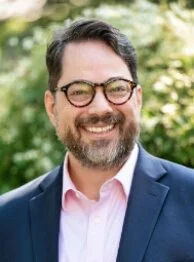
Jonathan B. Singer,
Ph.D., LCSWFriday, June 24, 2022 from 10:00 – 11:30 a.m. CT
Fee: $35. Includes 1.5 CEU’s.
Webinar Summary:
Working with suicidal people is consistently rated by therapists as among the most stressful of all clinical experiences. Today’s workshop will look at clinician beliefs and bias about suicide risk, the difference between risk factors and warning signs, working with people with chronic suicidal ideation, techniques for uncovering suicidal ideation and intent, and how and when to use screening tools like the C-SSRS and when to complete a suicide risk assessments.
Learning Objectives:
By the end of the workshop, participants will be able to:
1) Distinguish between risk factors and warning signs for suicide
2) List three techniques for uncovering suicidal ideation and intent
3) Compare the C-SSRS and suicide risk assessment.About Jonathan Singer:
Jonathan B. Singer, Ph.D., LCSW is Associate Professor of Social Work at Loyola University Chicago, Past-President of the American Association of Suicidology and coauthor of the 2015 Routledge text, Suicide in Schools: A Practitioner’s Guide to Multi-level Prevention, Assessment, Intervention, and Postvention. He is a two-time winner of the National Association of Social Workers Media Award (2012 and 2016). He was a 2014 Visiting Scholar at Fordham University, the 2017 Lucille N. Austin Scholar at Columbia University, and the 2018 Distinguished Lecturer at Weber State University. Dr. Singer is a well-regarded international speaker who has given hundreds of continuing education workshops, keynote addresses, and presentations on youth suicide, ethics, technology, adolescent development and attachment-based family therapy in the USA, Latin America, Asia, and Europe.
He is the author of over 75 publications and his research has been featured in national and international media outlets like NPR, BBC, Fox, Time Magazine, and The Guardian. His co-authored article with Arielle Sheftall and John Ackerman about the news media’s reporting on the suicide deaths of Kate Spade and Anthony Bourdain won the prestigious 2019 SDX prize for research on journalism. He is an NASW Expert, Healio Psychiatry Peer Perspective Board member, and on several national youth advisory boards including Sandy Hook Promise, JED Foundation, Suicide Prevention Resource Center, and the National Suicide Prevention Lifeline. A pioneer in the integration of technology and social work, Dr. Singer is an original member of the online suicide prevention social media community #SPSM, past-Treasurer for the international human services Information Technology association (http://husita.org/), co-lead for the Social Work Grand Challenge initiative “Harness Technology for Social Good” (https://grandchallengesforsocialwork.org/harness-technology-for-social-good/), and member of CSWE’s Technology Advisory Group. Dr. Singer is the founder and host of the award-winning Social Work Podcast (www.socialworkpodcast.com), the first podcast by and for social workers.
The Social Work Podcast has over 40,000 followers on social media, listeners in 208 countries and territories, and a million podcast episode downloads per year. He lives in Evanston, IL with his wife and three children and can be found on Twitter as @socworkpodcast and Facebook at facebook.com/swpodcast.
Please note that in order to receive CEU’s for this webinar, attendees must join the Zoom webinar with video enabled. Attendees joining by phone will not be eligible for CEU’s. This webinar will be presented live and will NOT be available to participants afterwards.
Refund & Credit Policy: Participants who cancel their registrations at least one week (five business days) before the start of the session can receive a credit or refund minus a processing fee equal to 20% of the payment. No credits or refunds will be given for cancellations received less than one week before the start of the workshop. Please contact our office at (847)933-0051 x 455 to make a refund or credit request.
Turning Point Behavioral Health Care Center is a licensed State of Illinois provider of Continuing Education for social workers (LSW/LCSW), clinical psychologists, marriage and family therapists, and professional counselors (LPC/LCPC). License #’s 159.000226, 168.000209, and 268.000028. IAODAPCA CEU’s are not available for this webinar.
For further information about the Turning Point Academy, please call (847)933-0051 x 455.
Spring 2022
-
Gender and Sexual Orientation Diversity in Clinical Work
Friday January 28, 2022
A two-part webinar training presented by Braden Berkey, Psy.D., CSE
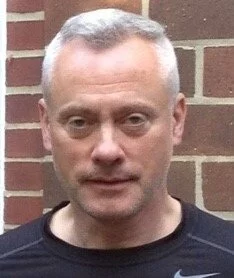
Braden Berkey,
Psy.D., CSEJanuary 28 & February 11, 2022 from 9:00 a.m. – 12:00 p.m. CT
Fee: $75 per training. Includes 3 CEU’s per training.
Webinar Summary:
Gender and Sexual Orientation Diversity in Clinical Work: Perspectives on Identity across the Lifespan
Part One:
The first part of this training will familiarize clinicians with the development, construction, and enactment of gender. We will explore how gender factors into clinical presentations, focusing on the navigation of therapeutic relationships with transgender and gender expansive individuals. This session will also include discussion of a case vignette.
Learning Objectives:
Participants will gain an appreciation of the biological and social contributors to gender diversity
Participants will gain a basic understanding of gender inclusive clinical practice.
Part Two:
We will build on the first session, examining the intersections of gender with sexual orientation. The evolution and expansion of sexual orientations will be presented. Using case vignettes, participants will explore personal reactions and clinical approaches to work with sexual and gender minority clients.
Learning Objectives:
Participants will understand how gender and sexuality are conflated
Participants will gain insight into the impact of personal and cultural perspectives on their work with gender and sexual minority clients.
About Braden Berkey:
Braden Berkey, Psy.D., CSE completed his doctoral work in clinical psychology at Wright State University in Dayton, Ohio. He is a licensed clinical psychologist who has held positions in private practice, university counseling, managed care and community health care settings. His professional practice has focused on sexual minority and sexual health issues. Dr. Berkey served as the Director of Behavioral Health & Social Services at Howard Brown Health and he created the Sexual Orientation and Gender Identity Institute (SOGI) at Center on Halsted to expand access to LGBTQ culturally competent mental health clinicians. He has been a core faculty member at the Chicago School of Professional Psychology since 2008 and he is a recipient of the university’s Distinguished Teaching for Excellence in Multicultural Teaching Award. Braden is a member of the American Association of Sex Educator, Counselors and Therapists (AASECT), and he holds a certification as a sexuality educator. He is also the executive director of Projects Advancing Sexual Diversity (PASD) and a director of the Multiplicity of the Erotic (MOTE) Conference.
Please note that in order to receive CEU’s for this webinar, attendees must join the Zoom webinar with video enabled. Attendees joining by phone will not be eligible for CEU’s. This webinar will be presented live and will NOT be available to participants afterwards.
Refund & Credit Policy: Participants who cancel their registrations at least one week (five business days) before the start of the session can receive a credit or refund minus a processing fee equal to 20% of the payment. No credits or refunds will be given for cancellations received less than one week before the start of the workshop. Please contact our office at (847)933-0051 x 455 to make a refund or credit request.
Turning Point Behavioral Health Care Center is a licensed State of Illinois provider of Continuing Education for social workers (LSW/LCSW), clinical psychologists, marriage and family therapists, and professional counselors (LPC/LCPC). License #’s 159.000226, 168.000209, and 268.000028. IAODAPCA CEU’s are not available for this webinar.
For further information about the Turning Point Academy, please call (847)933-0051 x 455.
-
Beginning Family Therapy
Friday February 4, 2022
A webinar training presented by Abigail Hoffmann, MS, LMFT and Julianne Rooney, MS, LCPC

Abigail Hoffmann,
MS, LMFT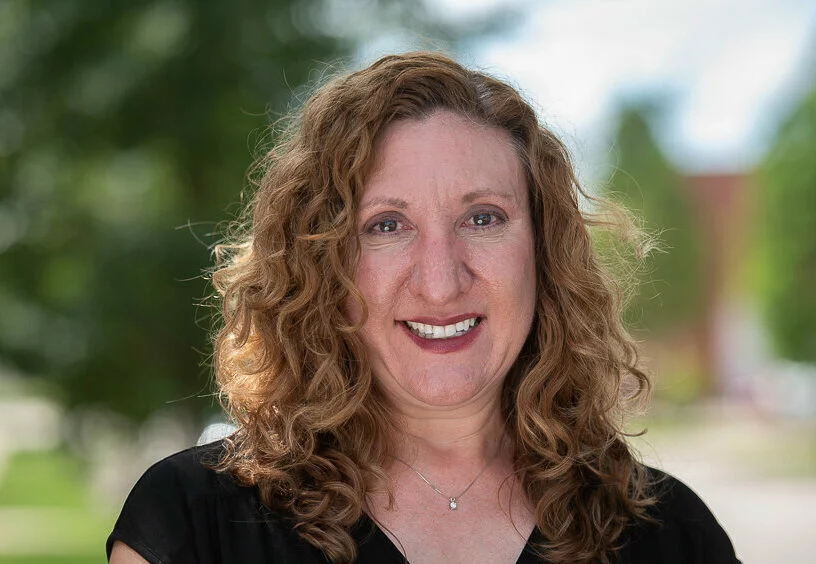
Julianne Rooney,
MS, LCPCFriday, February 4, 2022 from 10:00 a.m. – 12:00 p.m. CT
Fee: $75. Includes 3 CEU’s
Webinar Summary: This webinar training is meant to educate attendees on the basic skills and information needed to start working with family therapy cases. Ideally, participants will leave feeling more confident and competent to begin working with families. Attendees will learn how to prepare for the initial contact and first session with a family as well as ways to assess, create goals, and begin to implement interventions. Practical application examples will be provided to illustrate concepts discussed.
Objectives:
Attendees will:
Learn stages of therapy unique to working with families
Learn assessment and intervention techniques unique to working systemically with families
Apply concepts to case examples
Feel prepared and capable to begin working with family cases
Mrs. Hoffmann works as Turning Point’s Director of Counseling Services, and oversees the outpatient therapy program and all outpatient clinicians. She is trained in marriage and family therapy from Northwestern University, which has provided her with an integrative and systemic orientation to treatment with individuals, couples, families, and children. Some of her clinical interests include working with couples, providing assistance with parenting issues, and improving the quality of parent-child relationships.
Ms. Rooney is a Licensed Clinical Professional Counselor with over 18 years of experience treating couples, families, and individuals. She is trained as a Marriage and Family therapist by Arizona State University, which provided her with a systemic and integrative approach to psychotherapy. Since 2015, Ms. Rooney has worked in management roles at Turning Point and has been the Director of Groups Programming and Clinical Support Services since 2021. In addition to her clinical and management roles, Ms. Rooney has provided clinical supervision to interns as well as clinical staff and is passionate about providing the highest quality supervision to her supervisees. In her clinical work, Ms. Rooney utilizes a strengths-based, client-centered approach to support her clients in achieving their individual goals, fueled by a belief that we all possess the ability to change our stories and live the lives we desire. Ms. Rooney’s clinical interests include women’s issues, parenting, depression, anxiety, bipolar disorder, schizophrenia, trauma recovery, and couples and family therapy.
Please note that in order to receive CEU’s for this webinar, attendees must join the Zoom webinar with video enabled. Attendees joining by phone will not be eligible for CEU’s. This webinar will be presented live and will NOT be available to participants afterwards.
Refund & Credit Policy: Participants who cancel their registrations at least one week (five business days) before the start of the session can receive a credit or refund minus a processing fee equal to 20% of the payment. No credits or refunds will be given for cancellations received less than one week before the start of the workshop. Please contact our office at (847)933-0051 x 455 to make a refund or credit request.
Turning Point Behavioral Health Care Center is a licensed State of Illinois provider of Continuing Education for social workers (LSW/LCSW), clinical psychologists, marriage and family therapists, and professional counselors (LPC/LCPC). License #’s 159.000226, 168.000209, and 268.000028. IAODAPCA CEU’s are not available for this webinar.
For further information about the Turning Point Academy, please call (847)933-0051 x 455.
Summer 2021
-
Treating Psychosis in Family Therapy
Monday June 28, 2021
A webinar training presented by Abigail Hoffmann, MS, LMFT

Abigail Hoffmann,
MS, LMFTMonday, June 28, 2021 from 12:00 – 1:00 p.m. CT
Fee: $10. Includes 1 CEU.
Webinar Summary:
This training will familiarize attendees with family therapy treatment approaches that are useful when working with a family that has one member who has experienced psychosis. Attendees will learn about basic frameworks to incorporate into an outpatient community mental health setting.
Objectives:
Learn conceptual frameworks for at least two treatment approaches specific to working with this population
Begin to identify ways to incorporate this knowledge into work with attendees’ own cases
Brainstorm ways to overcome challenges to implementing these new interventions.
About Abigail Hoffmann:
Ms. Hoffmann works as Turning Point’s Director of Counseling Services and oversees Outpatient Clinicians. She is trained in marriage and family therapy from Northwestern University, which has provided her with an integrative and systemic orientation to treatment with individuals, couples, families, and children. Some of her clinical interests include working with couples, providing assistance with parenting issues, and improving the quality of parent-child relationships.
Turning Point Behavioral Health Care Center is a licensed State of Illinois provider of Continuing Education for social workers (LSW/LCSW), clinical psychologists, marriage and family therapists, and professional counselors (LPC/LCPC). License #’s 159.000226, 168.000209, and 268.000028. IAODAPCA CEU’s are not available for this webinar.
Refund & Credit Policy: As of September, 2020: Participants who cancel their registrations at least one week (five business days) before the start of the session can receive a credit or refund minus a processing fee equal to 20% of the payment. No credits or refunds will be given for cancellations received less than one week before the start of the workshop. Please contact our office at (847)933-0051 x 455 to make a refund or credit request.
Please note that in order to receive CEU’s for this webinar, attendees must join the Zoom webinar with video enabled. Attendees joining by phone will not be eligible for CEU’s.
For further information about the Turning Point Academy, please call (847)933-0051 x 455.
Spring 2021
-
Models of Couples Therapy
Monday March 1, 2021
A webinar training presented by Abigail Hoffmann, MS, LMFT and Julianne Rooney, MS, LCPC

Abigail Hoffmann,
MS, LMFT
Julianne Rooney,
MS, LCPCMonday, March 1, 2021 from 12:00 – 1:00 p.m. CT
Fee: $10. Includes 1 CEU.
Webinar Summary:
In this presentation, you will learn about various conceptual models of couples therapy. Attendees will learn about assessment and intervention techniques unique to working with couples and will begin to apply these techniques to case examples.
Objectives:
Attendees will:
Learn conceptual frameworks for at least two approaches to couples therapy
Take away specific interventions you can start using with your current couples cases
Practice applying conceptual frameworks to case examples.
About Abigail Hoffmann:
Ms. Hoffmann works as Turning Point’s Outpatient Therapy Coordinator, and oversees Outpatient Clinicians. She is trained in marriage and family therapy from Northwestern University, which has provided her with an integrative and systemic orientation to treatment with individuals, couples, families, and children. Some of her clinical interests include working with couples, providing assistance with parenting issues, and improving the quality of parent-child relationships.
About Julianne Rooney:
Ms. Rooney is a Licensed Clinical Professional Counselor with over 18 years of experience treating couples, families, and individuals. She is trained as a Marriage and Family therapist by Arizona State University, which provided her with a systemic and integrative approach to psychotherapy. Since 2015, Ms. Rooney has worked in management roles at Turning Point and has been the Groups Program Coordinator since 2017. In addition to her clinical and management roles, Ms. Rooney has provided clinical supervision to interns as well as clinical staff and is passionate about providing the highest quality supervision to her supervisees. In her clinical work, Ms. Rooney utilizes a strengths-based, client-centered approach to support her clients in achieving their individual goals, fueled by a belief that we all possess the ability to change our stories and live the lives we desire. Ms. Rooney’s clinical interests include women’s issues, parenting, depression, anxiety, bipolar disorder, schizophrenia, trauma recovery, and couples and family therapy.
Please note that in order to receive CEU’s for this webinar, attendees must join the Zoom webinar with video enabled. Attendees joining by phone will not be eligible for CEU’s. This webinar will be presented live and will NOT be available to participants afterwards.
Turning Point Behavioral Health Care Center is a licensed State of Illinois provider of Continuing Education for social workers (LSW/LCSW), clinical psychologists, marriage and family therapists, and professional counselors (LPC/LCPC). License #’s 159.000226, 168.000209, and 268.000028. IAODAPCA CEU’s are not available for this webinar.
Refund & Credit Policy: As of September, 2020: Participants who cancel their registrations at least one week (five business days) before the start of the session can receive a credit or refund minus a processing fee equal to 20% of the payment. No credits or refunds will be given for cancellations received less than one week before the start of the workshop. Please contact our office at (847)933-0051 x 455 to make a refund or credit request.
For further information about the Turning Point Academy, please call (847)933-0051 x 455.
-
The Transition from Peer to Supervisor in Behavioral Health Services
Wednesday June 2, 2021
A webinar training presented by Arnie Aronoff, Ph.D.

Arnie Aronoff,
Ph.D.Wednesday, June 2, 2021 from 9:00 a.m. – 12:00 p.m. CT
Fee: $75. Includes 3 CEU's.
Webinar Summary:
Clinicians and social workers are sometimes asked to assume supervision of peers and former colleagues. Some have previous experience and skills in supervision. Many, however, are under-prepared and find the transition from peer to supervisor to be very challenging. The goals of this seminar are (1) to help you understand the challenges involved in this transition; and (2) to acquire skills to help you in this process.
Learning Objectives
By the conclusion of this seminar, you should be able to:
1. Describe psychological challenges involved in going from peer to supervisor.
2. Explain how to establish new interpersonal boundaries, particularly with peers who are or were friends outside the office.
3. List 3-5 ways an employee’s resistance to change differs from that of a clinical client.
4. Distinguish between process orientation in clinical work and outcome orientation in supervision.
5. Understand how to supervise employees who are younger or older than you, your contemporaries, and/or have more years of professional experience or organizational seniority.
About Arnie Aronoff:
Arnie Aronoff, Ph.D. is adjunct faculty in the Crown Family School of Social Work, Policy, and Practice at the University of Chicago. He has taught many workshops in the School’s Professional Development Program (PDP) designed to help social service administrators and their organizations function as optimally as possible. Arnie maintains a consulting practice focusing on organizational development and change in the social service and healthcare sectors. He has had decades of experience in human resources management, including recruiting, employee relations, diversity and inclusion, and training.Refund & Credit Policy: As of September, 2020: Participants who cancel their registrations at least one week (five business days) before the start of the session can receive a credit or refund minus a processing fee equal to 20% of the payment. No credits or refunds will be given for cancellations received less than one week before the start of the workshop. Please contact our office at (847)933-0051 x 455 to make a refund or credit request.
For further information about the Turning Point Academy, please call (847)933-0051 x 455.
Fall 2020
-
Couples and Family Therapy in a Community Mental Health Center Setting
Monday September 28, 2020
A webinar training presented by Abigail Hoffmann, MS, LMFT and Julianne Rooney, MS, LCPC

Abigail Hoffmann,
MS, LMFT
Julianne Rooney,
MS, LCPCMonday, September 28, 2020 from 12:00 – 1:00 p.m. CT
Fee: $10. Includes 1 CEU.
Webinar Summary:
The purpose of this training is for attendees to receive an introduction to Systems Theory and to learn a basic framework for assessment and intervention with families and couples. Attendees will:
Learn four key features of General Systems Theory
Be able to define First order and Second order change in systems
Have practice applying systems theory concepts to assess case examples
About Julianne Rooney: Ms. Rooney is a Licensed Clinical Professional Counselor with over 18 years of experience treating couples, families, and individuals. She is trained as a Marriage and Family therapist by Arizona State University, which provided her with a systemic and integrative approach to psychotherapy. Since 2015, Ms. Rooney has worked in management roles at Turning Point and has been the Groups Program Coordinator since 2017. In addition to her clinical and management roles, Ms. Rooney has provided clinical supervision to interns as well as clinical staff and is passionate about providing the highest quality supervision to her supervisees. In her clinical work, Ms. Rooney utilizes a strengths-based, client-centered approach to support her clients in achieving their individual goals, fueled by a belief that we all possess the ability to change our stories and live the lives we desire. Ms. Rooney’s clinical interests include women’s issues, parenting, depression, anxiety, bipolar disorder, schizophrenia, trauma recovery, and couples and family therapy.
About Abigail Hoffmann: Ms. Hoffmann works as Turning Point’s Outpatient Therapy Coordinator, and oversees our Outpatient Clinicians. She is trained in marriage and family therapy from Northwestern University, which has provided her with an integrative and systemic orientation to treatment with individuals, couples, families, and children. Some of her clinical interests include working with couples, providing assistance with parenting issues, and improving the quality of parent-child relationships.
Turning Point Behavioral Health Care Center is a licensed State of Illinois provider of Continuing Education for social workers (LSW/LCSW), clinical psychologists, marriage and family therapists, and professional counselors (LPC/LCPC). License #’s 159.000226, 168.000209, and 268.000028. IAODAPCA CEU’s are not available for this webinar.
Refund & Credit Policy: As of September, 2020: Participants who cancel their registrations at least one week (five business days) before the start of the session can receive a credit or refund minus a processing fee equal to 20% of the payment. No credits or refunds will be given for cancellations received less than one week before the start of the workshop. Please contact our office at (847)933-0051 x 455 to make a refund or credit request.
Please note that in order to receive CEU’s for this webinar, attendees must join the Zoom webinar with video enabled. Attendees joining by phone will not be eligible for CEU’s. This webinar will be presented live and will NOT be available to participants afterwards.
For further information about the Turning Point Academy, please call (847)933-0051 x 455.
-
Training to Support Living Room and Crisis Intervention Staff and Operations
Wednesday October 14, 2020
A series of 8 webinars presented by Mark Sanders, LCSW, CADC

Mark Sanders,
LCSW, CADCOctober 14 - December 16, 2020, 9:00 - 11:00 a.m. CT
Fee: $50 per session (or all 8 sessions for $350). Includes 2 CEU's per session.
Webinar Summary:
Training to Support Living Room and Crisis Intervention Staff and Operations
A series of 8 webinar sessions presented by Mark Sanders, LCSW, CADC.
Part One – October 14 – Motivational Interviewing
Motivational interviewing is a person-centered, non-confrontational approach geared towards increasing an individual’s internal motivation to change. Topics covered in this presentation include: the spirit of motivational interviewing, the use of OARS in your work as a crisis worker, using principles of motivational interviewing to build rapport, and stage-based interventions in your role as a crisis worker.
Objectives:
By the end of this presentation you will be able to:
Demonstrate the spirit of motivational interviewing.
Utilize OARS in your work as a crisis worker.
Utilize stage-based interventions in your work.
Part Two – October 21 – Motivational Interviewing
In this presentation you will learn: how to reduce resistance to change; the 8 stages of learning motivational interviewing; how to elicit and strengthen change talk; how to increase client confidence in their ability to change; motivational interviewing techniques which help facilitate change: how to integrate motivational interviewing with other approaches.
Objectives:
By the end of this presentation you will be able to:
Reduce resistance to change.
Strengthen Change Talk.
Increase client confidence in their ability to change.
Integrate motivational interviewing with other approaches.
Part Three – November 4 – Trauma Informed Care
The majority of individuals seeking mental health, addictions and co-occurring disorders services have histories of trauma. Topics covered in this presentation include: An historical perspective on trauma and trauma treatment, five types of traumatic stress disorders, approaches to trauma recovery, how to do no harm, the role of crisis workers in a trauma informed system of care, self-care for crisis workers.
Objectives:
By the end of this presentation you will be able to:
Distinguish between various 5 types of traumatic stress disorders
Do no harm as a crisis worker.
Fulfill the role of a crisis worker in a trauma informed system of care.
Part Four – November 11 – Addiction Assessment and Engagement
This presentation focuses on the engagement and assessment of substance use disorders. Topics covered include: engagement before the first meeting, engagement within the first 10 minutes of contact, reasons individuals with mental illness and addiction are sometimes difficult to engage and how to deal with resistance, the criteria for substance use disorders, how to do an assessment; strength based assessments.
Objectives:
By the end of this virtual presentation you will be able to:
Engage peers within the first 10 minutes of contact.
Deal with resistance while assessing for addictions.
Conduct a substance use disorders assessment.
Part Five – November 17 – Prevention of Burnout and Compassion Fatigue for Crisis Workers
Crisis workers are at risk of burnout and compassion fatigue. Topics covered in this presentation include: the criteria for burnout and compassion fatigue, the differences between burnout and compassion fatigue, reasons crisis workers are vulnerable to burnout and compassion fatigue; reasons some crisis workers are more vulnerable to both occupation hazards than others, strategies to prevent burnout and compassion fatigue, creating life balance as an intervention strategy.
Objectives:
By the end of this presentation you will be able to:
Distinguish between burnout and compassion fatigue.
Assess your individual vulnerability for burnout and compassion fatigue.
Practice strategies to prevent burnout and compassion fatigue.
Part Six – December 1 – Co-Occurring Disorders
Compared to individuals with a single diagnosis of mental illness or addictions, individuals with co-occurring disorders experience more evictions, arrests, hospitalizations, suicide attempts and actual suicides. Topics covered in this presentation include: the definition of co-occurring disorders, the interaction between mental illness and addiction, the person centered approach to co-occurring disorders recovery and the role of crisis workers, integrated co-occurring disorders treatment and the role of crisis workers, best practices in co-occurring disorders treatment.
Objectives:
By the end of this presentation you will be able to:
Articulate the interaction between mental illness and addiction for individuals with co-occurring disorders.
Demonstrate an understanding of the role of a crisis worker in the person-centered approach to co-occurring disorders recovery.
Effectively do crisis work in integrated co-occurring disorders programming.
Part Seven – December 8 – Therapeutic Benefits of Humor for Crisis Workers
Topics covered in this presentation include: How laughter can help crisis workers maintain physical, mental and emotional health; laughter as stress management for crisis workers; humor as prevention of burnout and compassion fatigue; where to find humor and incorporate it into your life.
Objectives:
By the end of this presentation you will be able to:
Utilize humor to help maintain mental and emotional health.
Utilize humor to decrease stress in your role as a crisis worker.
Utilize humor to help prevent burnout and compassion fatigue.
Part Eight – December 16 – Logo Therapy: Helping Clients Turn Life Pain and Crisis Into Purpose
Logo Therapy was developed by renowned Psychiatrist and Holocaust survivor Viktor Frankl. Frankl believed that for most people life purpose comes from life pain. Topics covered in this presentation include: the 10 things that give life meaning/purpose, short and long term goal setting, helping clients turn life pain and crisis into purpose, Logo Therapy exercises, life planning exercise.
Objectives:
By the end of this presentation you will be able to:
Articulate the 10 things that give life meaning.
Help individuals served set short term goals.
Utilize principles of Logo Therapy in your work.
Additional Session – December 14 – The Role of Leaders in Helping Crisis Workers Maintain Well Being
Every several years crises occur which impact the entire nation and the stability of crisis workers who can be impacted by these crises such as: September 11th, Hurricane Katrina, the economic recession of 2008, COVID-19 and the new economic recession. This presentation focuses on how leaders in behavioral health can best support crisis workers during difficult times. Topics covered include: the impact of crisis on crisis workers, the stages of a crisis, facilitating healing circles for crisis workers, creating safety for crisis workers, team building to create support for crisis workers, organizational strategies to address crisis.
Objectives:
By the end of this presentation you will be able to:
Support crisis workers during difficult times
Help create safety for crisis workers
Team build to create support for crisis workers
Facilitate healing circles for crisis workers.
About Mark Sanders:
Mark Sanders, LCSW, CADC, is an international speaker, trainer, and consultant in the behavioral health field whose work has reached thousands throughout the United States, Europe, Canada, Caribbean and British Islands. Mark is the author of five books, which focus on behavioral health. Recent writings include Slipping through the Cracks: Intervention Strategies for Clients Multiple Addictions and Disorders, Recovery Management: and Relationship Detox: Helping Clients Develop Healthy Relationships in Recovery. He has had two stories published in the New York Times best-selling books series, Chicken Soup for the Soul. Mark has been a certified addictions counselor for 34 years. He has received numerous awards including a Life Time Achievement Award from the Illinois Addiction Counselor Certification Board and the Barbara Bacon Award for outstanding contributions to the Social Work profession as a Loyola University of Chicago Alumni. Mark is co-founder of Serenity Academy of Chicago, the only recovery high school in Illinois. He is past president of the board of the Illinois Chapter of NAADAC. He has had a 30 year career as a university educator having taught at the University of Chicago, Illinois State University, Illinois School of Professional Psychology, and Loyola University of Chicago, School of Social Work.
Please note that in order to receive CEU’s for this webinar, attendees must join the Zoom webinar with video enabled. Attendees joining by phone will not be eligible for CEU’s.
Refund & Credit Policy: As of September, 2020: Participants who cancel their registrations at least one week (five business days) before the start of the session can receive a credit or refund minus a processing fee equal to 20% of the payment. No credits or refunds will be given for cancellations received less than one week before the start of the workshop. Please contact our office at (847)933-0051 x 455 to make a refund or credit request.
Turning Point Behavioral Health Care Center is a licensed State of Illinois provider of Continuing Education for social workers (LSW/LCSW), clinical psychologists, marriage and family therapists, and professional counselors (LPC/LCPC). License #’s 159.000226, 168.000209, and 268.000028.
For further information about the Turning Point Academy, please call (847)933-0051 x 455.
-
Becoming an Anti-Racist Mental Health Clinician
Wednesday October 28, 2020
A webinar training presented by Marion Malcome, MSW, LCSW, and Brit Holmberg, MSW, LCSW

Marion Malcome,
MSW, LCSW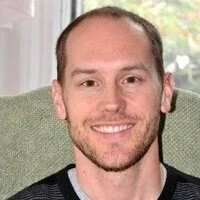
Brit Holmberg,
MSW, LCSWWednesday, October 28, 2020 from 8:30 a.m. - 3:30 p.m. CT
Fee: $125. Includes 5 CEU's.
Webinar Summary:
As mental health clinicians work with clients of color across multiple systems, it is critical to have both the language and analysis build effective cross-cultural relationships and challenge institutional racism and white supremacy. Specifically, human service providers working to dismantle racism need to:
Develop a historical perspective of racism in the U.S.
Acquire and deepen the language of race
Understand and analyze the current impact of racism
Increase individual skills for practice
Work for transformation at the agency and community levels.
This interactive workshop describes institutional racism in the 21st century and provides strategies for becoming an effective anti-racist clinician at the micro, mezzo, and macro levels. It is ideal for a practitioner who is either interested in beginning to incorporate anti-racist principles into their work, or who has begun the process but is interested in additional interventions and further reflection.
Objectives:
To educate participants about the reality of institutional racism in the 21st century
To equip participants to identify ways that institutional racism impacts their practice
To empower participants to practice in a way that counteracts institutional racism in their agency, as well as the larger community
To foster a supportive environment for participants to practice the language of race and engage in constructive dialogue.
About the presenters:
Marion Malcome, MSW, LCSW a Licensed Clinical Social Worker in the State of Illinois, has dedicated her professional and personal life to raising awareness about mental health amongst people of color and preparing professionals to effectively support this same population and appreciate their unique history and needs. Marion received her BS in Psychology with a minor in Afro-American Studies and a Master of Social Work with a concentration in community mental health, both from the University of Illinois at Urbana-Champaign (UIUC). Marion has over ten years of experience in direct clinical social work practice. She has practiced in the field of mental health, ranging from hospital and psychiatric impatient settings, private practice, to community mental health throughout the city of Chicago. Marion is the Owner and Chief Consultant of SydneyMalcome LLC, a boutique consulting firm providing a range of supporting services to small socially-minded organizations. SydneyMalcome LLC has recently expanded to provide organizations with consultation and training on antiracist practices, privilege and organizational change. Currently, Marion is a fourth-year Doctoral Student at the University of Chicago School of Social Service Administration (SSA). Marion’s research interests are at the intersection of place, race and mental health. More specifically, she is interested in understanding the long-term impact of stressors within high-burdened neighborhoods on the mental health of African American women and mothers. Marion is passionate about mental health equity for communities of color and sees this work as an issue of social justice.
Brit Holmberg, MSW, LCSW is a Licensed Clinical Social Worker with a decade of experience providing mental health services to a wide array of populations. He is also the co-creator of Becoming an Anti-Racist Social Worker training. Brit received a B.S. from Cornell University, a Masters Degree in Social Work at Loyola University Chicago, and a MDiv from Garret Theological Seminary. Prior to joining Loyola University of Chicago’s student Wellness Center as a staff therapist, Brit offered individual and group therapy to adults at Northwestern Memorial Hospital and in private practice. He uses a strengths-based approach to support clients in identifying their core values and finding their voice. Brit’s clinical interests include mindfulness, anti-racist practice, spirituality, and group work. He has offered a variety of workshops, consultation, and trainings on these topics across Chicago and Illinois.
Turning Point Behavioral Health Care Center is a licensed State of Illinois provider of Continuing Education for social workers (LSW/LCSW), clinical psychologists, marriage and family therapists, and professional counselors (LPC/LCPC). License #’s 159.000226, 168.000209, and 268.000028. IAODAPCA CEU’s are not available for these webinars.
Refund & Credit Policy: As of September, 2020: Participants who cancel their registrations at least one week (five business days) before the start of the session can receive a credit or refund minus a processing fee equal to 20% of the payment. No credits or refunds will be given for cancellations received less than one week before the start of the workshop. Please contact our office at (847)933-0051 x 455 to make a refund or credit request.
Please note that in order to receive CEU’s for this webinar, attendees must join the Zoom webinar with video enabled. Attendees joining by phone will not be eligible for CEU’s. This webinar will be presented live and will NOT be available to participants afterwards.
For further information about the Turning Point Academy, please call (847)933-0051 x 455.
-
Models of Family Therapy
Monday November 30, 2020
A webinar training presented by Abigail Hoffmann, MS, LMFT and Julianne Rooney, MS, LCPC

Abigail Hoffmann,
MS, LMFT
Julianne Rooney,
MS, LCPCMonday, November 30, 2020 from 12:00 – 1:00 p.m. CT
Fee: $10. Includes 1 CEU.
Webinar Summary:
This training is meant to educate attendees on the conceptual frameworks of the most prominent and influential models of family therapy: Structural Intergenerational (Bowen) Family Therapy, as well as couples therapy from a Self Psychology perspective. Attendees will learn assessment and intervention strategies unique to each model and begin to consider how these can be applied to current cases.
Objectives:
Attendees will:
Learn conceptual frameworks of 3 influential models of family therapy
Learn assessment and intervention techniques of each model
Practice applying model concepts to case examples
About Abigail Hoffmann:
Ms. Hoffmann works as Turning Point’s Outpatient Therapy Coordinator, and oversees Outpatient Clinicians. She is trained in marriage and family therapy from Northwestern University, which has provided her with an integrative and systemic orientation to treatment with individuals, couples, families, and children. Some of her clinical interests include working with couples, providing assistance with parenting issues, and improving the quality of parent-child relationships.
About Julianne Rooney:
Ms. Rooney is a Licensed Clinical Professional Counselor with over 18 years of experience treating couples, families, and individuals. She is trained as a Marriage and Family therapist by Arizona State University, which provided her with a systemic and integrative approach to psychotherapy. Since 2015, Ms. Rooney has worked in management roles at Turning Point and has been the Groups Program Coordinator since 2017. In addition to her clinical and management roles, Ms. Rooney has provided clinical supervision to interns as well as clinical staff and is passionate about providing the highest quality supervision to her supervisees. In her clinical work, Ms. Rooney utilizes a strengths-based, client-centered approach to support her clients in achieving their individual goals, fueled by a belief that we all possess the ability to change our stories and live the lives we desire. Ms. Rooney’s clinical interests include women’s issues, parenting, depression, anxiety, bipolar disorder, schizophrenia, trauma recovery, and couples and family therapy.
Turning Point Behavioral Health Care Center is a licensed State of Illinois provider of Continuing Education for social workers (LSW/LCSW), clinical psychologists, marriage and family therapists, and professional counselors (LPC/LCPC). License #’s 159.000226, 168.000209, and 268.000028. IAODAPCA CEU’s are not available for this webinar.
Refund & Credit Policy: As of September, 2020: Participants who cancel their registrations at least one week (five business days) before the start of the session can receive a credit or refund minus a processing fee equal to 20% of the payment. No credits or refunds will be given for cancellations received less than one week before the start of the workshop. Please contact our office at (847)933-0051 x 455 to make a refund or credit request.
Please note that in order to receive CEU’s for this webinar, attendees must join the Zoom webinar with video enabled. Attendees joining by phone will not be eligible for CEU’s. This webinar will be presented live and will NOT be available to participants afterwards.
For further information about the Turning Point Academy, please call (847)933-0051 x 455.
Spring 2020
-
Effective Assessment and Intervention Strategies for Working with Suicidal Adults: Providing the Calm During the Storm
Friday March 20, 2020
A webinar training presented by Martina Cortez, MS, LCPC
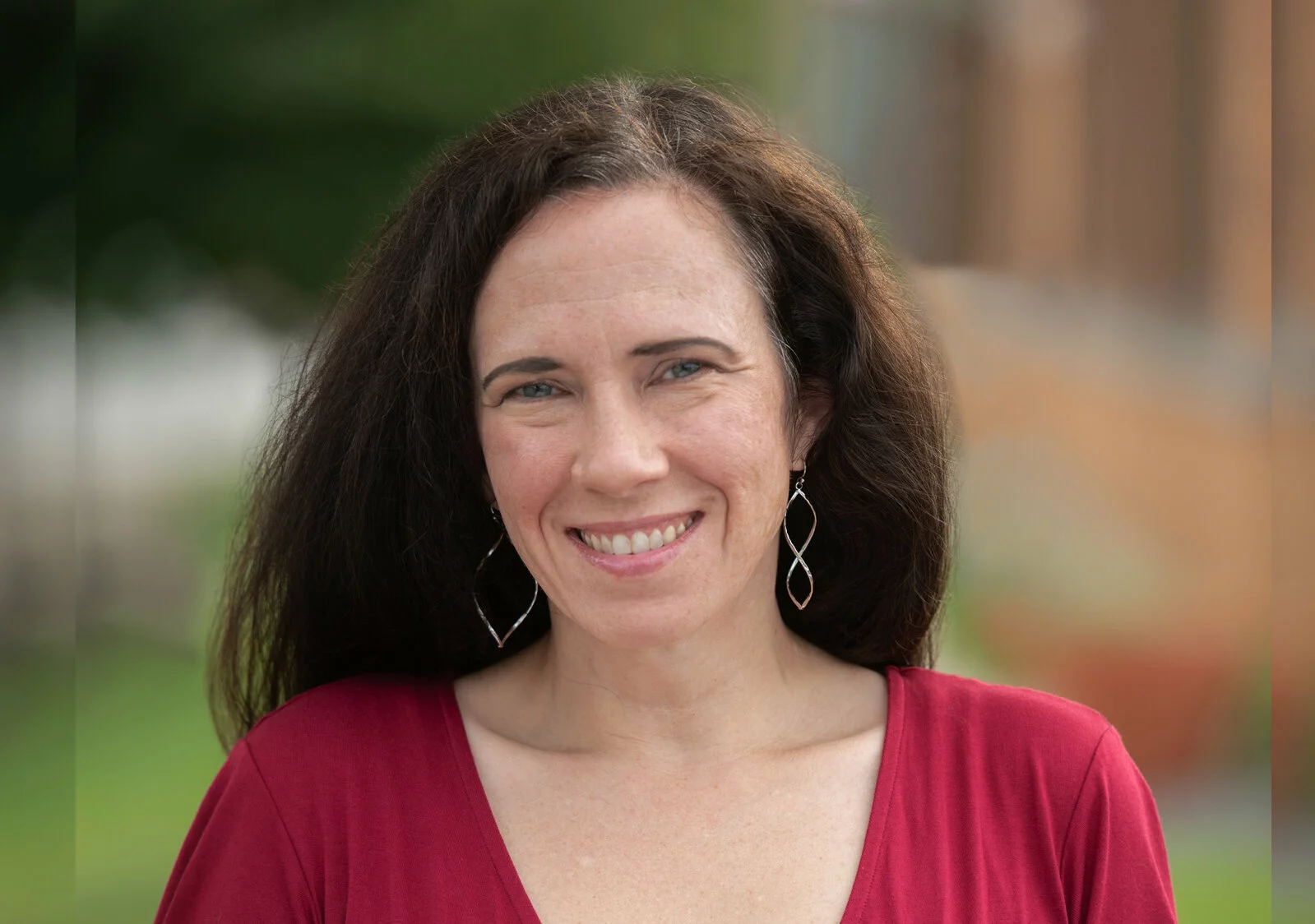
Martina Cortez,
MS, LCPCFriday, March 20, 2020 from 8:30 a.m. - 4:00 p.m. CT
Fee: $150. Includes 6 CEU's.
Webinar Summary:
One of the most challenging issues clinicians can face is determining how to best help a client who is presenting with suicidal thoughts. The fear that is triggered by the weight of what can quite literally be a “life or death” set of decisions can serve to confound clinicians. This fear can be abated when clinicians are equipped with accurate knowledge about suicide risk and strong suicide assessment skills. In this seminar (which focuses on adult clients), you will learn the risk factors for suicide, protective factors that guard against the likelihood of a suicide attempt, the necessary components of a suicide assessment, how to complete a Petition for Involuntary/Judicial Admission when a client needs to be assessed at a hospital, and how to help a client create a safety plan when hospitalization is not necessary. We will also review proper documentation for a suicide assessment and review case examples for an opportunity to apply your learning.
About Martina Cortez:
Ms. Cortez has been working in Community Mental Health settings in Illinois for close to 20 years. In that time, she has worked as a therapist, case manager, clinical supervisor, program manager, and agency administrator. She worked as a crisis worker for 10 years and spent six years running the Emergency Services Team at Turning Point Behavioral Health Care Center. In addition to her clinical experience, Ms. Cortez also has extensive experience providing administrative and clinical supervision and training. She has provided supervision and training in both individual and group settings, and has also served on panel discussions in the community that emphasized the importance of access to mental health care and resources. Topics she has trained on include: clinical assessment and treatment planning, crisis intervention, confidentiality, clinical supervision, and treatment of personality disorders. In her current position as the Compliance Officer at Turning Point Behavioral Health Care Center, she is a member of the senior leadership team and oversees the Open Access Intake Program. She is responsible for agency compliance with standards established by organizations such as CARF, the Division of Mental Health, DCFS, and the Department of Human Services. She works with managers and staff to ensure compliance with applicable laws, such as HIPAA, as well as safety codes and professional ethics.
Turning Point Behavioral Health Care Center is a licensed State of Illinois provider of Continuing Education for social workers (LSW/LCSW), clinical psychologists, marriage and family therapists, and professional counselors (LPC/LCPC). License #’s 159.000226, 168.000209, and 268.000028.
The IAODAPCA Categories for this seminar are: Counselor II, Preventionist II, CARS II,CODP I or II, PCGC II, CCJP II, CRSS I or II, CVSS II, CPRS I or II, MAATP II, CFPP II, NCRS II.
For further information about the Turning Point Academy, please call (847)933-0051 x 455.
-
Medical Cannabis and Mental Health: Implications to Counseling Clinicians
Friday June 12, 2020
A webinar training presented by Anne Shragal, MA, LCPC, PEL-SC
Friday, June 12, 2020 from 9:00 a.m. - 12:00 p.m. CT
Fee: FREE. Includes 3 CEU's.
Webinar Summary:
Many clients are finding therapeutic benefits with the use of medical cannabis when monitored and used properly. Emerging research indicates patients are reporting a reduction in symptoms such as anxiety, depression, panic attacks, etc. This, in turn, allows the clinician to work on maladaptive behaviors and cognitive distortions. This seminar is an introductory presentation on the uses of medical cannabis and its implications in Clinical Counseling. Attendees will learn the details surrounding medical cannabis including endocannabinoid and phytocannabinoid systems, strains, and absorptions methods. In addition, participants will get an in-depth look at the implications of medical cannabis on mental health. The objective of this presentation is to provide and create dialogue and information surrounding the medicinal use of cannabis in the practice of clinical counseling.
About Anne Shragal:
Anne Shragal became an expert of medical cannabis use and mental health. Since January 2017, Ms. Shragal has been working with patients that use medical cannabis as a treatment with counseling. She also trains clinicians on foundational information, research, and implications into mental health. Anne owns and operates Breeze Counseling, servicing clients in-person and through telehealth in Illinois. She holds an LCPC with a Masters degree in Community Counseling and a PEL endorsed in School Counseling. She is currently pursuing her doctoral degree at Northern Illinois University in Higher Education and Supervision.
Turning Point Behavioral Health Care Center is a licensed State of Illinois provider of Continuing Education for social workers (LSW/LCSW), clinical psychologists, marriage and family therapists, and professional counselors (LPC/LCPC). License #’s 159.000226, 168.000209, and 268.000028.
For further information about the Turning Point Academy, please call (847)933-0051 x 455.
Fall 2019
-
Vicarious Trauma: Building a Working Dialogue for Managers and Staff
Friday November 15, 2019
Presented by Jennifer Cutilletta, LCSW
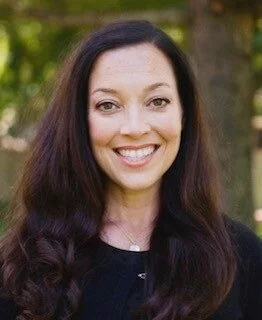
Jennifer Cutilletta,
LCSWFriday, November 15, 2019 from 1:00 - 4:00 p.m. CT
Fee: $75. Includes 3 CEU's.
Seminar Summary:
Working with people around their struggles and successes leaves an impact on our personal and professional selves that travels with us when we leave work each day. Being the manager or supervisor of staff in the field brings special concerns. How do we give voice to that experience while keeping our work as the focus? How do we manage the differing styles and needs of staff? In this workshop, we will discuss identifying and responding to the signals of vicarious trauma in ourselves and on our team. We will discuss ways to build daily awareness, to invite everyone on staff to customize response strategies that work for each individual, and how to humanize the trauma load in an accessible way that reduces isolation and builds community.
About Jennifer Cutilletta:
Jennifer Cutilletta, LCSW, has been working with children and families in Chicago for over 15 years, largely centered in the Woodlawn, N Lawndale, and Humboldt Park communities. Jennifer works with kids and adults, individuals, couples, families and groups. She also works with therapists and direct service staff one on one and in workshops to reflect on their work in ways that invites their growth as clinicians and to respond to the people they serve. Jennifer believes strongly in the positive, lasting change which comes from a collaborative relationship.
Where: Turning Point, 8324 Skokie Blvd., Skokie, IL 60077
Turning Point Behavioral Health Care Center is a licensed State of Illinois provider of Continuing Education for social workers (LSW/LCSW), clinical psychologists, marriage and family therapists, and professional counselors (LPC/LCPC). License #’s 159.000226, 168.000209, and 268.000028.
IAODAPCA CEU’s are also available.
For further information about the Turning Point Academy, please call (847)933-0051 x 455.
-
When the Titanic Meets the Iceberg: Addressing the Trauma Beneath Addiction: Mental Illness, Criminality and Self-Harming Behavior
Friday December 13, 2019
Presented by Mark Sanders, LCSW, CADC

Mark Sanders,
LCSW, CADCFriday, December 13, 2019 from 12:30 p.m. - 4:00 p.m. CT
Fee: $150. Includes 6 CEU's.
Seminar Summary:
Many persons with substance use disorders are difficult to engage in counseling because they often view their substance use as “the solution to their problems.” Particularly, the solution for the pain of the trauma which lies beneath the addiction. If unaddressed the addiction can lead to criminality, self-harming behavior, multiple addictions and co-occurring disorders. In this presentation you will learn: an historical link between trauma and substance use disorders; reasons clients with substance use disorders “cling to their drugs”; engagement strategies; how traditional approaches to substance use disorders can re-traumatize clients; how to address 4 types of traumatic stress disorders which often co-occur with addictions, including PTSD, Complex Trauma, historical trauma and 24-7-365 terror; evidence based approaches to trauma informed addictions treatment; how to create a safe sanctuary for recovery to occur; how to create a trauma informed system of care for clients with substance use disorders.
Objectives:
By the end of this workshop you will learn:
An historical perspective on the link between trauma and addiction.
How traditional approaches to addictions treatment can re-traumatize clients
Six engagement strategies
How to address four types of traumatic stress disorders which co-occur with addictions.
Four evidence based trauma informed approaches to addictions recovery
Seven steps for developing a trauma informed system of care of care.
About Mark Sanders:
Mark Sanders, LCSW, CADC, is an international speaker, trainer, and consultant in the behavioral health field whose work has reached thousands throughout the United States, Europe, Canada, Caribbean and British Islands. Mark is the author of five books, which focus on behavioral health. Recent writings include Slipping through the Cracks: Intervention Strategies for Clients Multiple Addictions and Disorders, Recovery Management: and Relationship Detox: Helping Clients Develop Healthy Relationships in Recovery. He has had two stories published in the New York Times best-selling books series, Chicken Soup for the Soul. Mark has been a certified addictions counselor for 34 years. He has received numerous awards including a Life Time Achievement Award from the Illinois Addiction Counselor Certification Board and the Barbara Bacon Award for outstanding contributions to the Social Work profession as a Loyola University of Chicago Alumni. Mark is co-founder of Serenity Academy of Chicago, the only recovery high school in Illinois. He is past president of the board of the Illinois Chapter of NAADAC. He has had a 30 year career as a university educator having taught at the University of Chicago, Illinois State University, Illinois School of Professional Psychology, and Loyola University of Chicago, School of Social Work.
Where: Turning Point, 8324 Skokie Blvd., Skokie, IL 60077
Turning Point Behavioral Health Care Center is a licensed State of Illinois provider of Continuing Education for social workers (LSW/LCSW), clinical psychologists, marriage and family therapists, and professional counselors (LPC/LCPC). License #’s 159.000226, 168.000209, and 268.000028.
The IAODAPCA Categories for this seminar are: Counselor I or II, Preventionist I or II, CARS I or II, CODP I, II, or III, PCGC II, CCJP I or II, CAAP I, CRSS I or II, CPRS I or II, MAATP I or II, RDDP, NCRS II, CFPP II, NCRS II, CVSS II.
For further information about the Turning Point Academy, please call (847)933-0051 x 455.
Spring 2019
-
Addressing Advanced Supervision Issues: Psychological Stress, Resistance, and Impairment
Friday February 22, 2019
Presented by Toni R. Tollerud, PhD, LCPC
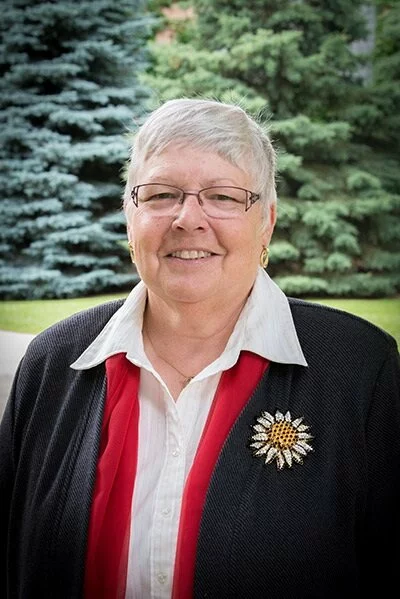
Toni R. Tollerud,
PhD, LCPCFriday, February 22, 2019 from 8:30 a.m. - 4:00 p.m. CT
Fee: $150. Includes 6 CEU's.
Seminar Summary:
This workshop deals with advanced issues that arise in the supervisory relationship including:
dealing with difficult supervisees
legal and ethical concerns
prevention strategies-setting up supervision in order to avoid difficulties
due process procedures in supervision
impairment
supervisor/supervisee burn-out
transference and countertransference.
Opportunities to apply concepts learned will be experienced by viewing video of counseling and supervision sessions.
About Toni Tollerud:
Toni R. Tollerud, PhD, LCPC, NCC, NCSC, ACS, is a Distinguished Teaching Professor Emerita from the Department of Counseling, Adult and Higher Education in the College of Education at Northern Illinois University. As an educator for over 45 years, Dr. Tollerud has had extensive experiences in professional ethics and supervision training. Dr. Tollerud is Past-President of the Illinois Counseling Association, North Central Association of Counselor Educators and Supervisors, and the Illinois Counselor Educators and Supervisors. She has received numerous awards for her professional work including the Illinois Mental Health Counselors Association Outstanding Service Award in 2006, Illinois Counselor Educators’ Educator of the Year Award in 2003 and the ICA Distinguished Leadership Award in 2010. In 2014, the Illinois School Counselors Association named their Counselor Educator of the Year Award in her honor. In 2017, the Schultz Foundation named a school counselor grant in her honor. She has published numerous articles and book chapters on counseling issues including counseling children, developmental school counseling, supervision, and LGBT issues. Besides publications on LGBT issues, she has presented numerous workshops for professional clinicians across the state addressing LGBT language, the coming out process, and therapeutic strategies.
Where: Turning Point, 8324 Skokie Blvd., Skokie, IL 60077
Turning Point Behavioral Health Care Center is a licensed State of Illinois provider of Continuing Education for social workers (LSW/LCSW), clinical psychologists, marriage and family therapists, and professional counselors (LPC/LCPC). License #’s 159.000226, 168.000209, and 268.000028. IAODAPCA CEU’s are not available at this time.
For further information about the Turning Point Academy, please call (847)933-0051 x 310.
-
Having the Conversation about Cultural and Historical Trauma
Friday May 10, 2019
Presented by Anita Mandley, MS, LCPC
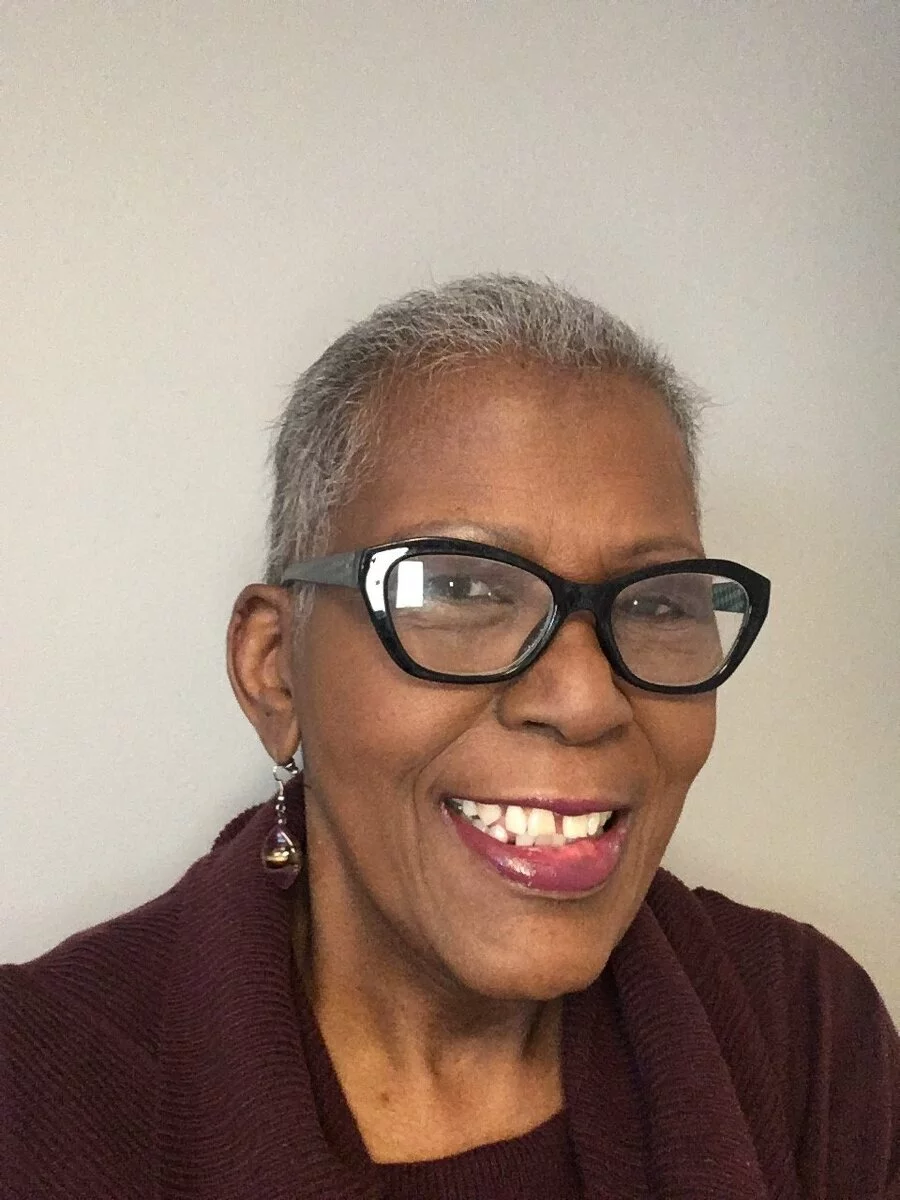
Anita Mandley,
MS, LCPCFriday, May 10, 2019 from 8:30 a.m. - 4:00 p.m. CT
Fee: $150. Includes 6 CEU's.
Seminar Summary:
If you work with African Americans, Native Americans, Holocaust Survivors and their descendants, inter-generational poverty, or refugees, you are sitting with the legacies of Cultural and Historical Trauma. If your clients differ from you in the areas of race, culture, religion, sexuality, class or gender, your own biases are there as well. This workshop brings these issues out of the shadows into consciousness, and opens a path towards healing the disenfranchised grief of cultural and historical wounds. In order to be attuned, mindful, effective healers, therapists also need to bring their own bias out of the shadows with the awareness that bias is already there. And since bias is already there, learn to regulate it instead of avoiding it. Learning and dialogue will be facilitated through lecture, dyadic discussion, experiential exercises and video presentation. By participating in this workshop, attendees will:
Be able to recognize and assess the impact of cultural and historical traumas in both their clients and themselves
Avoid the pitfalls of Cultural Blindness
Learn a six step model of self-regulation
Learn and experience a model for cultural assessment
Learn how to hold the dialectic of the survival narrative while validating the trauma, moving to a strength-based process of change
Learn interventions that provide a therapeutic counter-balance to micro-aggression and cultural and historical traumas.
About Anita Mandley:
Anita Mandley, MS, LCPC, is an integrative psychotherapist practicing at The Center for Contextual Change, in Skokie, Illinois. Anita works with clients with Complex PTSD, Dissociative Disorders, Eating Disorders and a variety of self-injurious behaviors. Her treatment interventions include Dialectical Behavior Therapy, Somatic Experiencing, Imagery, and expressive therapies. She is currently excited about seeing the transformative impact on her clients of her recently developed Integrative Trauma Recovery Group, ITR, a group therapy process designed specifically for adults with Developmental and Complex PTSD.
Where: Turning Point, 8324 Skokie Blvd., Skokie, IL 60077
Turning Point Behavioral Health Care Center is a licensed State of Illinois provider of Continuing Education for social workers (LSW/LCSW), clinical psychologists, marriage and family therapists, and professional counselors (LPC/LCPC). License #’s 159.000226, 168.000209, and 268.000028.
IAODAPCA CEU’s are also available.
For further information about the Turning Point Academy, please call (847)933-0051 x 455.
Fall 2018
-
Emotionally Focused Couple Therapy (EFT): Working with Emotion to Strengthen Attachment Bonds
Friday November 16, 2018
Presented by Jeff Hickey, LCSW
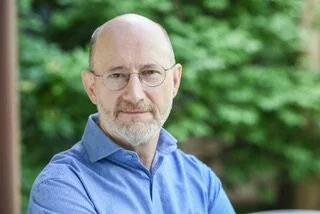
Jeff Hickey,
LCSWFriday, November 16, 2018 from 8:30 a.m. - 4:00 p.m. CT
Fee: $150. Includes 6 CEU's.
Seminar Summary:
EFT is a structured, experiential model of couple therapy that helps partners move from conflict, distance and distress to increased openness and trust. As the reactive cycles of conflict and distance that fuel distress are identified and resolved, the therapist then helps couples access and expand underlying emotions of sadness, loneliness and fear so they can develop and strengthen the attachment security that leads to strong and enduring attachment bonds The stance of EFT is that communication and behavior skills are principally the product of effective therapy rather than the route to change in themselves. Originated by Sue Johnson and Les Greenberg and rooted in John Bowlby’s attachment theory, the effectiveness of EFT is strongly supported by over 30 years of respected outcome research that has led it to be named as one of only two empirically supported couple therapies. And the growing body of process research has identified the specific steps and interventions essential for successful treatment outcome. This detailed introduction presents adult attachment theory in the context of couple relationships and specific methods of working with emotion to facilitate individual and couple change. The workshop utilizes video examples, brief exercises and discussion to help promote participants’ understanding of EFT.
Learning Objectives:
Participants will be able to —
Describe couple distress and relationship repair from an attachment perspective.
Name and describe the 4 theoretical bases that inform the model of EFT.
Describe how attachment styles influence partners’ coping strategies in the face of relationship distress.
Name and describe the 3 stages of EFT.
Identify at least 4 specific interventions that help partners identify, differentiate and express the vulnerable emotions that help decrease conflict and promote secure attachment bonds.
Name and define the 3 key change events in EFT.
About Jeff Hickey:
Jeff Hickey, LCSW, is Director and President of the Chicago Center for Emotionally Focused Therapy (chicagoeft.com) where he trains and supervises therapists in the practice of EFT. He is one of a select group of trainers in the U.S. and around the world certified by principal developer of EFT, Dr. Sue Johnson, and the International Centre for Excellence in EFT. He has presented on EFT and sex therapy at conferences and for agencies across the country. An area of special interest is the integration of an attachment theory framework with sex therapy for couples experiencing sexual trauma, dysfunction and sexuality in general. Jeff has over 30 years of experience working with a broad range of couples facing relationship difficulties. He is also an AASECT Certified Sex Therapist. He maintains a private practice focused exclusively on couple and sex therapy.
Where: Turning Point, 8324 Skokie Blvd., Skokie, IL 60077
Turning Point Behavioral Health Care Center is a licensed State of Illinois provider of Continuing Education for social workers (LSW/LCSW), clinical psychologists, marriage and family therapists, and professional counselors (LPC/LCPC). License #’s 159.000226, 168.000209, and 268.000028. IAODAPCA CEU’s are not available at this time.
For further information about the Turning Point Academy, please call (847)933-0051 x 310.
Spring 2018
-
Childhood Relational Trauma and its Impact on Love
Friday January 26, 2018
Presented by Laurie Kahn, MA, LCPC, MFA

Laurie Kahn,
MA, LCPC, MFAFriday, January 26, 2018, 9:30 a.m. - 12:30 p.m., followed by a 30 minute lunch break, and a book signing from 1:00 – 1:30 p.m.
Fee: $75. Includes 3 CEU's. Every registration includes a signed copy of "Baffled by Love: Stories of the Lasting Impact of Childhood Trauma Inflicted by Loved Ones" by Laurie Kahn.
Seminar Summary by Laurie Kahn:
Many of my clients, when they were children, were abused by someone they believed to be trustworthy, someone who professed to love them. The implications of this kind of relational trauma are vast. One of the most damaging results is impairment of the ability to trust and the capacity to form healthy caring relationships. In this workshop we will explore the challenges to healing within and outside the therapeutic relationship, including inevitable empathic breaks, re-victimization of survivors, and the dynamics of betrayal blindness. I will describe a new perspective on the impact of childhood trauma as a traumatic experience of love. We will explore the centrality of the therapeutic relationship for helping clients to create new love stories in which respect, mutuality and compassion are foundational.
Participants will:
recognize the unique challenges for the client and the therapist in the treatment of relational traumas.
understand the meaning and impact of a traumatic experience of love.
grasp the dynamics and impact of betrayal trauma, betrayal blindness and re-victimization for survivors of childhood trauma.
explore ways in which therapy can teach new models of love.
About Laurie Kahn:
Laurie Kahn, MA, LCPC, MFA is a pioneer in the field of trauma treatment. For more than thirty years, her ideas and expertise have served both people who have experienced childhood abuse and hundreds of clinicians she has mentored and consulted to. Laurie founded Womencare Counseling and Training Center and directs the Trauma Consultation Training Program. Her most salient contribution to the field is the concept of child abuse as specifically a traumatic experience of love. Laurie’s essays have been published in anthologies, and her articles and book reviews have appeared in the Journal of Trauma & Dissociation and the Journal of Trauma Practice. Her recent book, Baffled by Love: Stories of the Lasting Impact of Childhood Trauma Inflicted by Loved Ones, combines strands from her own personal story, along with those of her clients, to create a narrative full of resonance, meaning, and shared humanity.
Where: Turning Point, 8324 Skokie Blvd., Skokie, IL 60077
Turning Point Behavioral Health Care Center is a licensed State of Illinois provider of Continuing Education for social workers (LSW/LCSW), clinical psychologists, marriage and family therapists, and professional counselors (LPC/LCPC). License #’s 159.000226, 168.000209, and 268.000028. IAODAPCA CEU’s are not available at this time.
For further information about the Turning Point Academy, please call (847)933-0051 x 455.
-
Friday April 20, 2018
Presented by D.J. Moran, Ph.D., BCBA-D
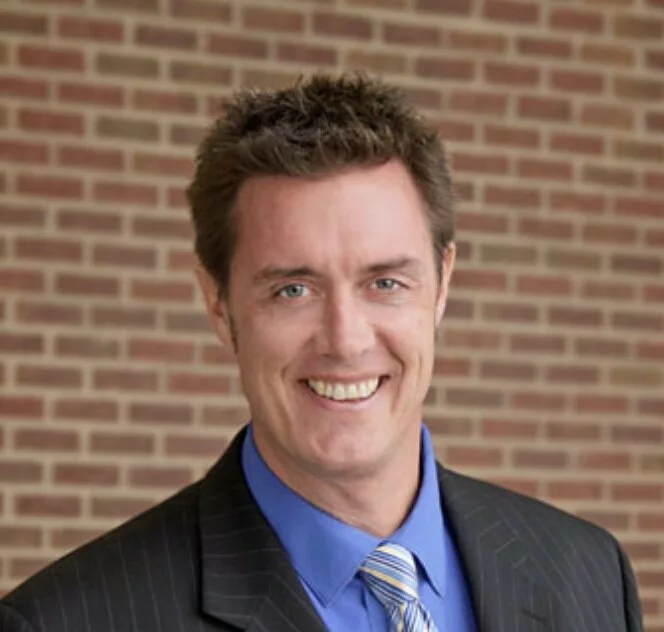
D.J. Moran,
Ph.D., BCBA-DFriday, April 20, 2018 from 8:30 a.m. - 4:00 p.m. CT
Fee: $150. Includes 6 CEU's.
Seminar Summary:
Incorporating Acceptance and Commitment Therapy (ACT) into a treatment approach can have a significant impact on clinical effectiveness and the well-being of clients. ACT is a rich, integrative approach, and has been shown to be effective for many clinically-relevant concerns. Because ACT takes a different perspective on psychotherapy, some clinicians wonder how to blend the applications into their own therapy approach. Other clinicians who have embraced the ACT concepts still have questions about certain aspects of the therapy. This workshop will explain ACT in a very clear, concise, user-friendly manner. Because ACT is helpful for many clinically-relevant concerns, case examples used throughout the day will include substance abuse, social phobia, OCD, depression, generalized anxiety disorder, anger management in executive coaching, and using a mindfulness-based approach to parenting children with childhood behavior disorders. The workshop will have experiential components, as well as group work and lecture material to assist participants in learning: • The six domains of ACT • Why acceptance is difficult for people, and what to do about it • How to make mindfulness specifically practical for clients • What to do when people are resistant to mindfulness exercises • How ACT relates to other empirically supported therapies.
About D.J. Moran:
Dr. Daniel J. Moran, Ph.D, BCBA-D is the founder of the MidAmerican Psychological Institute, founder of Pickslyde Consulting, and the past-president of the Association for Contextual Behavioral Science, the worldwide Acceptance and Commitment Therapy organization. The Association for Behavior Analysis International gave D.J. the Outstanding Mentor Award. He co-authored ACT in Practice, the canonical case conceptualization manual for Acceptance and Commitment Therapy, and several publications applying ACT to clinical issues, leadership, and behavioral health. Dr. D.J. has appeared on The Learning Channel, Animal Planet, and The Oprah Winfrey Network discussing anxiety disorders and hoarding, and is also a Recognized ACT Trainer and Board Certified Behavior Analyst.
Where: Turning Point, 8324 Skokie Blvd., Skokie, IL 60077
Turning Point Behavioral Health Care Center is a licensed State of Illinois provider of Continuing Education for social workers (LSW/LCSW), clinical psychologists, marriage and family therapists, and professional counselors (LPC/LCPC). License #’s 159.000226, 168.000209, and 268.000028. IAODAPCA CEU’s are not available at this time.
For further information about the Turning Point Academy, please call (847)933-0051 x 455.
Fall 2017
-
Traditional Dilemmas and Evolving Trends in Mental Health Practice: Clinical, Ethical, and Legal Considerations
Friday October 13, 2017
Presented by Susan Zoline, PhD
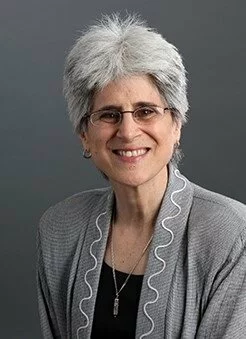
Susan Zoline,
PhDFriday, October 13, 2017 from 8:30 a.m. - 4:00 p.m. CT
Fee: $150. Includes 6 CEU's.
Seminar Summary:
The field of mental health ethics is constantly changing, requiring practitioners to continually update their knowledge and skills. This workshop will provide an overview of both traditional and contemporary ethical dilemmas faced by mental health professionals, applicable both to beginning and seasoned clinicians. Traditional topics such as boundaries, confidentiality, multiple relationships, termination and management of high risk situations will be addressed from the perspective of current practice trends, with consideration of clinical, ethical, legal and risk management arenas. Emerging areas of ethical challenge, such as the impact of technology on clinical practice, increased prevalence of suicide and threats of violence towards others, recent changes in FOID laws impacting IL mental health practitioners and dilemmas arising from requests for letters of support from mental health professionals will also be addressed. Strategies for approaching and responding to ethical dilemmas as well as guidelines for best practices and risk management will be provided, with particular importance placed on informed consent. Case vignettes will be examined and group discussion will be integrated into the presentation to illustrate the grey areas surrounding these complex issues.
Learning Objectives:
After attending this intermediate-level program, participants should be able to:
Identify three traditional or emerging ethical dilemmas in mental health practice with recommendations for best practices
Demonstrate two clear strategies for maintaining clear professional boundaries regarding the use of technology in clinical practice
Define two changing firearms (FOID) responsibilities for mental health practitioners in Illinois
Describe three empirically supported practices when working with a client who threatens harm to self or others.
About Susan Zoline:
Susan Zoline, Ph.D. is a Licensed Clinical Psychologist who has been involved in practicing, teaching and consulting in the Chicago area for over thirty five years. Dr. Zoline is Professor of Psychology at the Illinois School of Professional Psychology at Argosy University, Chicago, where she has been teaching clinical masters and doctoral students since 1988. Dr. Zoline’s areas of professional expertise include professional ethics, suicide, violence and abuse assessment and intervention, clinical supervision and risk management. Dr. Zoline is a longstanding member of the Illinois Psychological Association Ethics Committee which she currently Co-Chairs as well as current Chair of the IPA Academic Section. She has worked clinically in a broad variety of settings and regularly consults and provides workshops to mental health and other professionals, both locally and nationally, on topics related to professional ethics.
Where: Turning Point, 8324 Skokie Blvd., Skokie, IL 60077
Turning Point Behavioral Health Care Center is a licensed State of Illinois provider of Continuing Education for social workers (LSW/LCSW), clinical psychologists, marriage and family therapists, and professional counselors (LPC/LCPC). License #’s 159.000226, 168.000209, and 268.000028. IAODAPCA CEU’s are not available at this time.
For further information about the Turning Point Academy, please call (847)933-0051 x 455.
-
Engendering Inclusion: Providing Affirming Services to Transgender and Gender Nonconforming Adults
Friday November 3, 2017
Presented by Aren Drehobl, LCSW, CADC
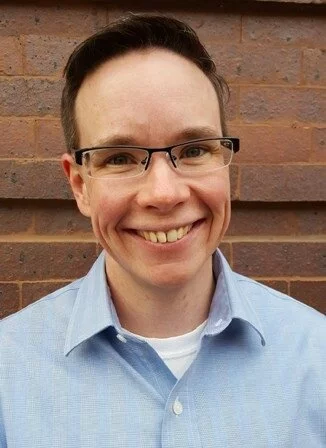
Aren Drehobl,
LCSW, CADCFriday, November 3, 2017 from 8:30 a.m. - 4:00 p.m. CT
Fee: $150. Includes 6 CEU's.
Seminar Summary:
Transgender and gender nonconforming people have existed throughout history. In recent years, however, dramatically increased visibility and growing social acceptance have led more transgender people than ever to openly discuss their identities, experiences, and needs. Even clinicians with extensive experience working with gender diversity have difficulty keeping up with rapidly evolving terminology, thinking about best practices, and available resources. This workshop will cover these topics and others to help participants provide truly affirming services to transgender and gender nonconforming adults.
The workshop format will include a combination of lecture, discussion, experiential exercises, and clinical consultation to help participants increase both their knowledge and their concrete skills in providing gender-affirming care.
Upon completion of the workshop, participants will be able to:
Comfortably use inclusive terminology and gender neutral language
Identify common presenting issues and contemporary practice models
Assess and improve the level of gender-inclusivity of their current practice
About Aren Drehobl:
Aren Drehobl, LCSW, CADC (pronouns: Aren/Aren/Aren’s) is a psychotherapist, substance abuse counselor, trainer, and consultant with eighteen years of experience serving lesbian, gay, bisexual, transgender, and queer (LGBTQ) communities. Aren currently works as a therapist in private practice and as an instructor in the Professional Development Program at University of Chicago’s School of Social Service Administration. Aren’s recent prior positions include Clinical Field Consultant at the University of Chicago and Program Manager of Recovering With Pride, the substance abuse treatment program of Howard Brown Health. Specialty interests include LGBTQ-affirming therapy, recovery from trauma, substance use and abuse, and issues facing transgender and gender nonconforming individuals. Aren has presented workshops on these and other topics to thousands of professionals in schools, nonprofits, and businesses.
Where: Turning Point, 8324 Skokie Blvd., Skokie, IL 60077
Turning Point Behavioral Health Care Center is a licensed State of Illinois provider of Continuing Education for social workers (LSW/LCSW), clinical psychologists, marriage and family therapists, and professional counselors (LPC/LCPC). License #’s 159.000226, 168.000209, and 268.000028. IAODAPCA CEU’s are not available at this time.
For further information about the Turning Point Academy, please call (847)933-0051 x 455.
